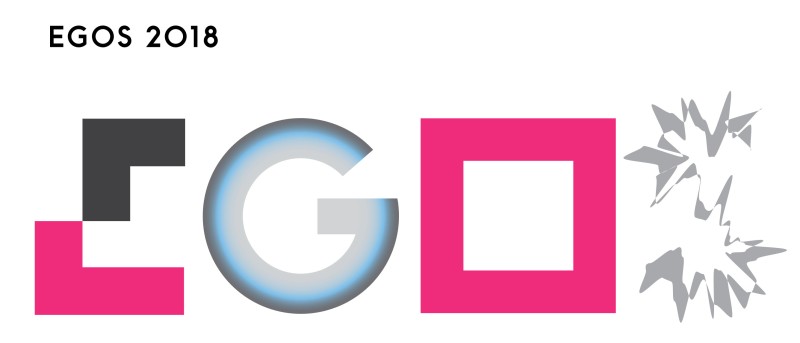Sub-theme 49: Morality and Moral Struggles in and beyond Organizations
Call for Papers
Contemporary organizations operate in unsettled times. The unexpected can surprise organizations in the form of moral struggles:
debates about what is right and wrong, good and bad, worthy and unworthy at a particular place and time (Hitlin & Vaisey,
2013). Organizations are embedded in fields, whose historically and socially located values, norms and beliefs include notions
of morality. These taken-for-granted moralities can be challenged in episodes of moral struggles, when different moral views
on field activities or practices clash and contention ensues. Moral struggles can relate to the boundaries of a field (e.g.,
can we sell human organs? Cf. Healy, 2006) or specific organizational practices that are deemed unjust or immoral (e.g., can
we employ children, or pay large bonuses to CEOs?). Moral struggles can sometimes result in substantive field change, as illustrated
for example by the rise of social entrepreneurship or alternative markets with explicit moral goals, such as fair trade, local
agriculture networks, or social investment.
Moral struggles have been examined in various disciplines. In
organization studies, scholars working on hybrid organizations have highlighted struggles related to multiple and often conflicting
logics, such as social enterprises that adhere to both an economic logic and a “moral” logic of social welfare (e.g., Mair
et al., 2015; Barman, 2016). Comparably, scholars have pointed to struggles arising from co-existing orders of worth (Boltanski
& Thévenot, 2006), that each value different moralities, and thereby create an “imperative of justification” for organizations
(Patriotta et al., 2011). Social movement research has shown how activism can be a source of ongoing moral struggles for organizations
(Soule, 2012; Briscoe & Gupta, 2016). Finally, research on corporate social responsibility and business ethics has also
examined struggles for business firms to be less socially and environmentally irresponsible, even when faced by economic constraints
(e.g., Abend, 2014; Mena et al., 2016). Moral struggles have also been studied by economic sociologists interested in market
boundaries, processes of valuation, and the organization of markets (e.g., Fourcade, 2011; Zelizer 2011), as well as by other
disciplines such as political economy and anthropology.
This sub-theme aims at bringing together organization
studies with morality studies, by analyzing morality and moral struggles in different organizational settings and fields.
We are looking for contributions studying how moral contention in organizational fields unfolds – its discourse, action repertoires,
strategies and material expressions. We particularly encourage contributions adopting historical and/or comparative perspectives.
Contributions can either shed light on transformations of the moral in a field over time, compare moral struggles and moralization
processes across fields and countries, or refer to questions of inequality and the transnational diffusion of morality and
associated struggles.
The following questions are indicative directions for papers, but we welcome other
conceptual and empirical papers that contribute to the subject of our sub-theme:
Who are “moral entrepreneurs”? How do they organize contestation (e.g., in terms of mobilizing structures, networks, social relations)? What action repertoires do they use?
Which conditions of the social, political and institutional contexts enable and constrain moral entrepreneurship? How do these conditions change?
How do organizations react to moral challenges? How do they cope with moral struggles inside and outside of their organization? And do these struggles intersect?
What are struggles around ‘moral’ market categories or organizational forms (such as benefit or social purpose corporations)? How does a category or form become accepted as moral?
How does remembering and forgetting work by different actors shape what was, is, and will be moral?
Do we witness a growing moralization of organizations and market fields today and if so, where and how does it play out?
Are current forms of moral struggles part of a long-term process of capitalist dynamics?
Do moral struggles “diffuse” from one market to another, from one country to another, and if so, why and how? What moral issues are addressed by which kinds of organizations, on what kinds of markets and in which countries? How does it translate into specific organizational practices, such as corporate social responsibility?
How do moral struggles play out along transnational supply chains? For instance, how do social business initiatives handle moral critiques in developing countries? How do moralization processes of organizations and fields affect global inequalities between the global North and the global South, between consumers and workers? When do these processes reinforce inequalities?
References
- Abend, G. (2014): The Moral Background: An Inquiry into the History of Business Ethics. Princeton: Princeton University Press.
- Barman, E. (2016): Caring Capitalism: The Meaning and Measure of Social Value. New York: Cambridge University Press.
- Boltanski, L., & Thévenot, L. (2006): On Justification: Economies of Worth. Princeton: Princeton University Press.
- Briscoe, F., & Gupta, A. (2016): “Social activism in and around organizations." Academy of Management Annals, 10, 671–727.
- Fourcade, M. (2011): “Cents and sensibility: Economic valuation and the nature of ‘nature’.” American Journal of Sociology, 116, 1721–1777.
- Healy, K. (2006): Last Best Gift: Altruism and the Market for Human Blood and Organs. Chicago: Chicago University Press.
- Hitlin, S., & Vaisey, S. (2013): “The new sociology of morality.” Annual Review of Sociology, 39, 51–68.
- Mair, J., Mayer, J., & Lutz, E. (2015): “Navigating institutional plurality: Organizational governance in hybrid organizations.” Organization Studies, 36, 713–739.
- Mena, S., Rintamäki, J., Fleming, P., & Spicer, A. (2016): “On the forgetting of corporate irresponsibility.” Academy of Management Review, 41, 720–738.
- Patriotta, G., Gond, J.‐P., & Schultz, F. (2011): “Maintaining legitimacy: Controversies, orders of worth, and public justifications.” Journal of Management Studies, 48, 1804–1836.
- Soule, S.A. (2012): “Social movements and markets, industries, and firms.” Organization Studies, 33, 1715–1733.
- Zelizer, V.A. (2011): Economic Lives: How Culture Shapes the Economy. Princeton: Princeton University Press.


